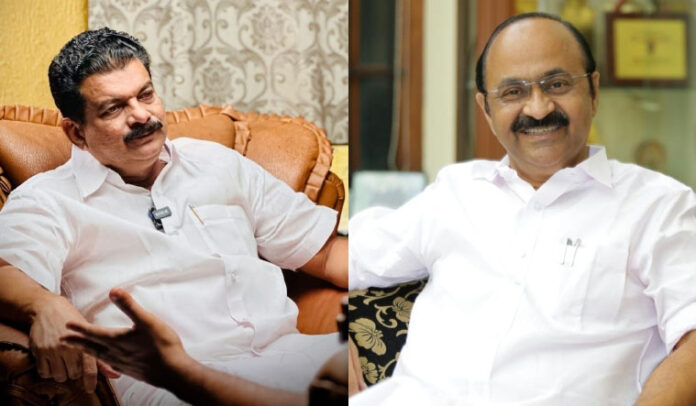NEW DELHI, Jan 31
Left-backed Independent MLA PV Anvar on Wednesday accused Kerala Opposition leader VD Satheesan of receiving Rs 150 crore from inter-state IT firms to sabotage Kerala’s SilverLine (K-Rail) semi-high-speed rail corridor.
The Nilambur MLA told the Kerala Assembly that the said companies were concerned about the SilverLine boost enabling Kerala to emerge as a major IT player in the country. If the table this turned in favour of Kerala, the investments and infrastructure built in other states by these firms will become useless. Thus they wanted to sabotage the K-Rail project to stall Kerala’s rise in the IT sector.
Anvar alleged that after container trucks carrying Rs 50 crore each reached Thrissur, ambulances were used to take them to the Congress leader’s friends.
“K-Rail was a prominent project of the Left government. If the project had been implemented, Kerala would have risen to international standards. It’d have yielded 25 years of progress in 5 years. There was a huge financial conspiracy to sabotage the project. “IT companies were ready to spend huge sums to ensure LDF’s defeat in the elections. VD Satheesan received Rs 150 crores as an election fund. The money was brought to Chetua shore near Thrissur’s Chavakkad in three stages in container trucks, each carrying Rs 50 crore each. From there, the money reached the friends of VD Satheesan in two ambulances. This money was invested in Karnataka. The Leader of the Opposition’s travel documents should be investigated. The Leader of Opposition has been to Bengaluru at least 3 times in a month,” Malayala Manorama quoted Anvar as saying.
What is K-Rail?
The Rs60,000-crore Silver Line project, aka K-Rail, is the biggest infrastructure project in Kerala’s history. It envisages a 530km dedicated rail corridor linking Thiruvananthapuram in the south to Kasaragod in the north, which will enable trains to run at 200kmph and cover the distance in less than four hours. An attractive proposition, considering that it currently takes 12 hours to travel from Thiruvananthapuram to Kasaragod. The proposed corridor will pass through 11 districts, and there will be 12 stations.
The state government has begun the laying of survey stones to initiate the project’s social impact study, sparking protests across the state. People are preventing authorities from entering their property and laying the stones. Clashes have turned violent in some places.
The government had announced an attractive compensation package for those affected by the project, but fears persist about delays in implementation, depreciation in land value on both sides of the tracks, and difficulties in securing land for resettlement. “The value of our land will nosedive,” said Mini P.C. of Alappuzha, an affected person. “This [rail corridor] cannot be compared with a road development project, as the value of land on both sides of the road would naturally increase in due course. But in a rail project, the value of land parcels go down as no development can take place near the track.”
Of the 1,222.45 hectares that the project needs, as much as 1,074.19 hectares is private property.
The government insists that only around 9,000 buildings, houses included, need to be taken over. Critics say that the actual number is much higher. Since Kerala is one of the most densely populated states in the country, rehabilitation also remains a major concern



























